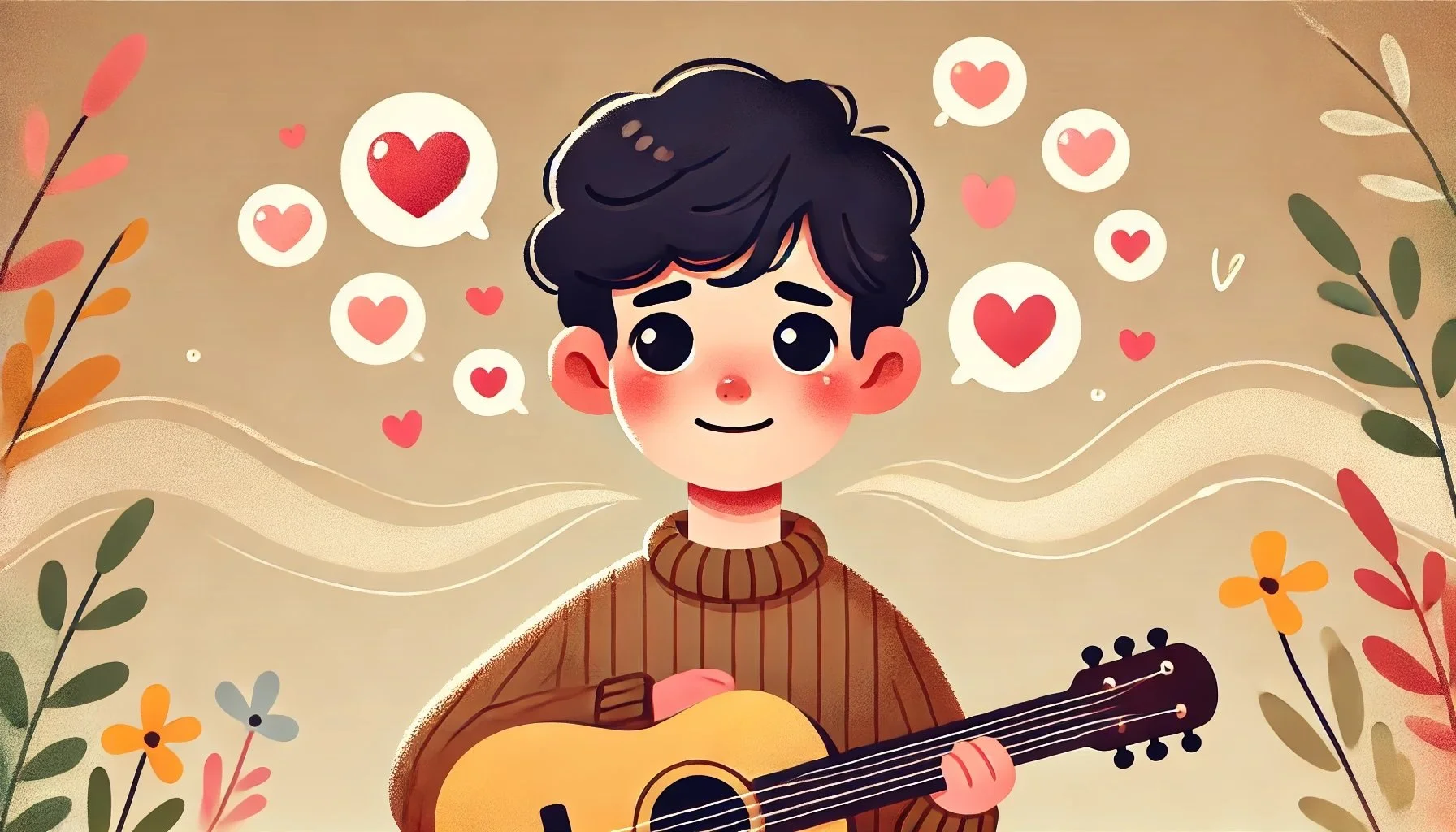How Learning Guitar Can Help with Mental Health: A Guide for Teens and Young Musicians
By Patrick Jordan
Music has long been known as a powerful tool for emotional healing. For many teens and young musicians, learning guitar can be more than just a skill—it can be a lifeline. As a singer-songwriter and guitar teacher, I’ve seen firsthand how playing guitar helps young people reduce stress, improve focus, and build confidence. More than that, it offers a healthy, creative way to process emotions and find a sense of identity. If you’re a teen (or the parent of one) looking for a positive outlet for mental health, here’s why learning guitar might be the perfect solution.
1. Guitar as a Form of Music Therapy
Music therapy has been used for decades to help people cope with anxiety, depression, and stress. While formal music therapy is conducted by professionals, simply learning an instrument like the guitar can have the same healing effects in everyday life.
How Guitar Helps with Mental Health
🎸 Stress Relief: Playing guitar allows teens to shift focus away from stressors like school, social pressure, or family struggles. The repetitive movements of strumming and fretting can be meditative, similar to deep breathing exercises.
🎵 Emotional Expression: Many young people struggle to put their feelings into words. Music provides a way to channel emotions through sound. Whether it’s playing an energetic song when feeling frustrated or writing lyrics about personal experiences, guitar helps process emotions in a healthy way.
🧠 Engages the Brain Positively: Music activates multiple areas of the brain, improving memory, focus, and problem-solving skills. For teens who struggle with ADHD or anxiety, playing guitar can be a calming and productive activity that strengthens mental skills.
2. How Playing Guitar Reduces Stress and Anxiety
Many teens feel overwhelmed by school, social expectations, and the pressures of growing up. Finding a way to unplug from daily stress is crucial for mental well-being.
Why Guitar Is a Great Stress Reliever
✅ Playing Music Slows the Heart Rate – Studies show that playing music lowers cortisol levels, the hormone responsible for stress.
✅ It’s a Healthy Escape – Instead of turning to screen time or unhealthy coping mechanisms, playing guitar provides a creative break from stress.
✅ It Creates Routine and Stability – Practicing a little each day can give teens a sense of structure and accomplishment, which is especially helpful for those struggling with anxiety.
🛠 Practical Tip: Encourage young musicians to play songs they love. Even just strumming simple chords can be enough to relieve stress!
3. Guitar Builds Confidence and Self-Worth
One of the biggest challenges teens face is low self-esteem. Whether it’s feeling insecure about social skills, school performance, or body image, young people often struggle with confidence.
Playing guitar helps build self-worth by:
🎶 Providing a Skill to Be Proud Of – Mastering an instrument gives a sense of accomplishment and something unique to share with others.
🎤 Helping Overcome Performance Anxiety – Even practicing in front of family can help teens gain confidence in their abilities.
👥 Creating Connection Through Music – Playing guitar can help teens make friends who share similar interests, especially in school or social groups.
⭐ Personal Experience: As a musician, I’ve seen how learning guitar can turn self-doubt into self-expression. Many of my students start out feeling shy, but over time, they gain confidence in their playing and even begin performing for others!
4. Using Music as an Outlet for Self-Expression and Healing
For many teens, bottling up emotions can lead to more stress, anxiety, or even depression. Guitar provides a safe way to let emotions out in a productive and positive manner.
🎼 Songwriting as Therapy – Many young musicians write their thoughts and emotions into lyrics and melodies, using their guitar to create something meaningful.
🎵 Playing Music That Matches Emotions – Sometimes, just playing a sad song when you’re feeling down or an uplifting song when you need motivation can make a huge difference in mental well-being.
Encouragement for Teens: Even if you’re just learning a few chords, you can still use your guitar to express what you’re feeling. Music doesn’t have to be perfect—it just has to be yours.
5. Final Thoughts: Guitar as a Lifelong Mental Health Tool
If you’re looking for a healthy way to cope with stress, boost confidence, and express emotions, learning guitar might be the best decision you make. Whether you’re playing alone in your room, jamming with friends, or performing for an audience, music has the power to heal and inspire.
If you’re a parent, consider signing your child up for guitar lessons as a way to support their mental and emotional well-being. And if you’re a teen, don’t be afraid to pick up a guitar and let music be your guide through life’s ups and downs.
🎸 Want to learn guitar? Start your journey today with Six String Academy!
About 6 String Academy
6 String Academy offers personalized guitar and vocal lessons in Woodland, California, for students of all ages. Led by Patrick N. Jordan, a dedicated teacher with over 25 years of playing experience and more than 15 years of teaching, our lessons focus on helping you grow as both a guitarist and singer. We specialize in beginner guitar lessons, rhythm and lead guitar, classical guitar, sight-reading, singing, and songwriting. Whether you're just starting out or looking to improve your skills, 6 String Academy provides supportive, one-on-one instruction tailored to your musical journey. Click here to schedule a consultation.

